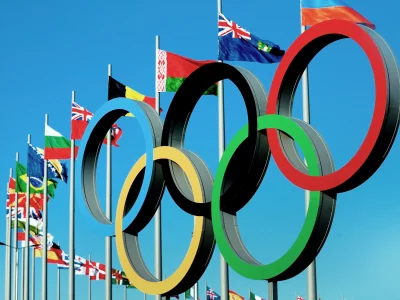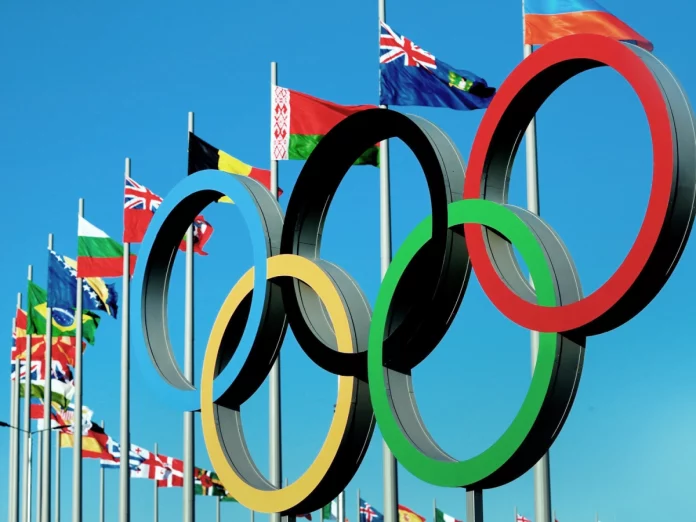
The Modern Olympic Games are one of the most prestigious and widely watched sporting events in the world, celebrating athletic excellence and promoting global unity. But have you ever wondered how this centuries-old tradition began?
The Ancient Olympic Tradition
In Ancient Greece, the Olympic Games had deep roots, as people held these games every four years in the city of Olympia, starting in 776 B.C. These games were dedicated to the Greek gods and celebrated athletic competition and physical excellence. Athletes from various Greek city-states competed in sports such as running, wrestling, javelin throwing, and even chariot racing.
However, this ancient tradition was interrupted in 393 AD, when the Roman Emperor Theodosius I banned the games, considering them incompatible with the Christian religion. The ancient Olympic Games fell into oblivion, and almost 1,500 years passed before a new Olympic era began.
The Renaissance of the Olympic Games
The idea of reviving the ancient Olympic Games emerged in the late 19th century, amid a climate of cultural renewal and interest in classical antiquity. The Frenchman Pierre de Coubertin was the visionary behind this revival. Coubertin believed that sports could be a powerful tool for promoting values such as peace, friendship and mutual respect among nations.
In 1896, Coubertin managed to bring together representatives of 13 nations in Athens, Greece, for the first Olympic Games of the modern era. This historic meeting marked the rebirth of the Olympic Games, and since then, the Olympics have been held every four years, with a few notable exceptions during the two world wars.
The Olympic Games Throughout the 20th Century
The modern Olympic Games have evolved significantly since their re-creation in 1896. Throughout the 20th century, they have witnessed historic moments, technological advancements and social changes that have shaped the event as we know it today.
One of the most iconic moments was the resurgence of the German team after World War II in 1952, when German athletes competed again at the Games after a long hiatus. This symbolized Germany's reintegration into the international sporting community.
The Olympic Games in the Modern Era:
As the Olympic Games have progressed into the 21st century, they have become a truly global sporting event, with athletes from all over the world competing in a wide variety of sports. The Sydney 2000 Olympic Games, for example, marked the first time that women competed in every Olympic sport.
Furthermore, the introduction of extreme sports such as snowboarding and skateboarding into the Winter and Summer Olympics demonstrated the Olympic movement's ability to adapt to emerging sporting trends and attract a younger audience.
The Olympic Games as a Catalyst for Social Change:
The Olympic Games have also played an important role as catalysts for social and political change. During the Cold War, sporting rivalries between the United States and the Soviet Union were intense, but the Olympics also provided a platform for sports diplomacy.
At the 1968 Olympic Games in Mexico City, athletes Tommie Smith and John Carlos made an iconic protest against racial discrimination in the United States by raising their clenched fists during the awards ceremony. This brought attention to issues of social justice and civil rights.
The Contemporary Challenges of the Olympic Games
Despite their long history of success, the modern Olympic Games have also faced significant challenges. In recent years, issues related to corruption, sports doping and the exorbitant costs of hosting the event have been the subject of debate.
In 2016, Rio de Janeiro hosted the Olympic Games, but the preparation and delivery of the event were marked by controversy and concerns about infrastructure and security. These concerns highlighted the need for a more careful examination of the costs and benefits of hosting the Olympic Games.
A Legacy of Competitive Spirit and Global Unity:
The modern Olympic Games have a rich and complex history spanning more than a century. Since their re-establishment in 1896, they have grown to become a global sporting event that promotes values of peace, friendship and mutual respect among nations.
However, the Olympic Games have also faced challenges and criticism over the years, highlighting the need to adapt to changing social, political and sporting situations. As we celebrate the global unity of the Olympic Games, it is important to reflect on their history and their impact on the world of sport.
